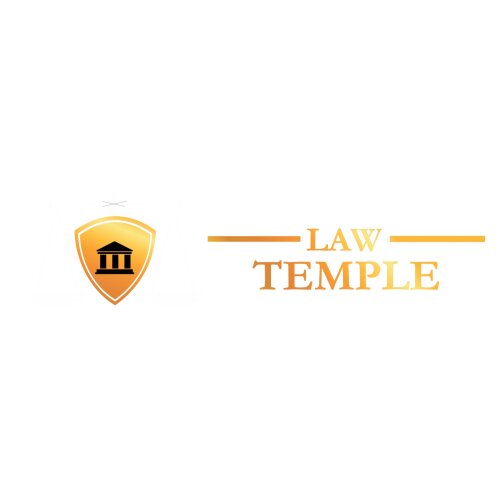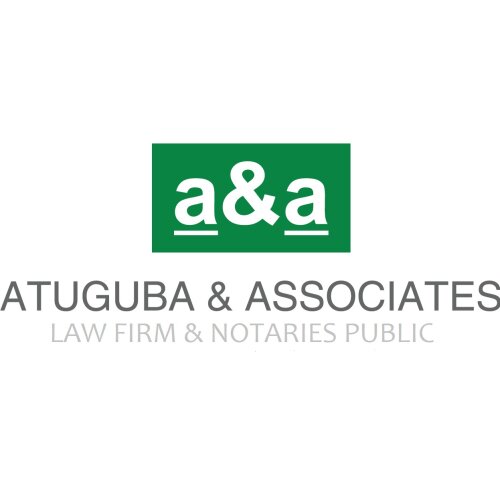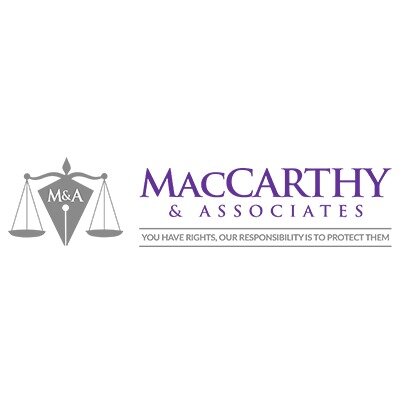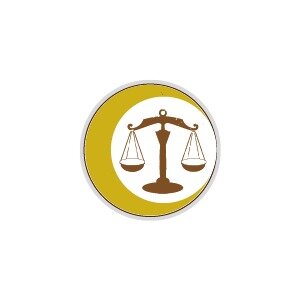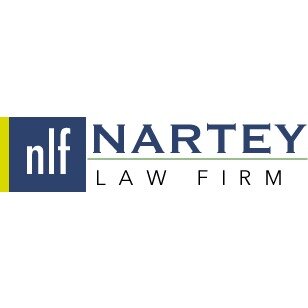Best Climate Change Law Lawyers in Ghana
Share your needs with us, get contacted by law firms.
Free. Takes 2 min.
Or refine your search by selecting a city:
List of the best lawyers in Ghana
About Climate Change Law in Ghana
Climate change law in Ghana consists of a combination of national legislation, regulations, policies, and international agreements aimed at addressing climate change challenges. This area of law is concerned with reducing greenhouse gas emissions, promoting sustainable development, and adapting to the impacts of climate change on people, the environment, and the economy. As Ghana faces increasing threats from climate variability such as floods, droughts, and coastal erosion, the government has established frameworks to ensure environmental protection and to align with global climate change initiatives.
Why You May Need a Lawyer
You may need a lawyer with expertise in climate change law in various situations. For example, if you are a business owner seeking to comply with environmental regulations, a community affected by climate change impacts such as flooding or land degradation, or an NGO involved in advocacy, legal representation may be crucial. Lawyers can provide guidance when facing penalties for non-compliance, in accessing funds for climate adaptation projects, or when involved in climate-related disputes. In addition, individuals and organizations may need legal help navigating permits for environmentally sensitive activities, resolving land use conflicts, or understanding Ghana’s obligations under international climate agreements.
Local Laws Overview
Ghana has made significant legal and policy strides concerning climate change. Some key aspects include:
- The Environmental Protection Agency Act, 1994 (Act 490) mandates the EPA to regulate, manage, and protect the environment, including climate-related functions.
- The National Climate Change Policy provides a framework for climate-resilient and low-carbon development, emphasizing adaptation, mitigation, and social development.
- The Renewable Energy Act, 2011 (Act 832) and its amendments promote renewable energy use and foster a transition to cleaner sources of power.
- The Forestry Commission Act and related regulations target the preservation of forests, which play a vital role in carbon sequestration.
- Ghana is a party to the Paris Agreement and thus has obligations to reduce greenhouse gas emissions and submit its Nationally Determined Contributions.
These laws interact with other environmental regulations, land laws, and customary practices, making legal advice critical for compliance and for resolving disputes.
Frequently Asked Questions
What is climate change law?
Climate change law refers to legal measures and frameworks aimed at mitigating the causes of, and adapting to, the impacts of climate change. This includes regulations on emissions, use of natural resources, environmental permits, and Ghana's commitments to international treaties.
Who enforces climate change law in Ghana?
The Environmental Protection Agency of Ghana is the principal regulator, working in coordination with the Ministry of Environment, Science, Technology and Innovation and other governmental agencies such as the Forestry Commission.
Do businesses need to comply with climate change regulations?
Yes. Businesses, especially in sectors such as energy, agriculture, construction, and manufacturing, must comply with environmental and climate change regulations. Non-compliance can result in fines, permit revocation, or shutdowns.
How can individuals or communities be affected?
Individuals and communities may be directly affected by climate change impacts such as floods or droughts. They may also need to comply with land use or environmental regulations or seek compensation for losses linked to climate change.
Can I challenge a government decision on climate change or major projects?
Yes. Individuals, groups, or organizations can seek judicial review or appeal against decisions by the government or regulatory bodies if their rights or environmental interests are affected.
What are Ghana’s international climate commitments?
Ghana has ratified the Paris Agreement and other global protocols, requiring the country to take action on climate change, submit national reports, and integrate climate action into national planning.
How does Ghana support renewable energy?
The Renewable Energy Act creates incentives for the development and use of renewable energy including solar, wind, and biomass. There are policies and tax incentives for businesses and individuals involved in renewables.
What legal protections exist for vulnerable populations?
Ghana’s policies recognize the need to protect vulnerable groups such as women, children, and rural communities from climate change impacts and often provide for special support or adaptation plans.
Are there funds or grants available for climate-related projects?
Yes. Ghana can access international financing such as the Green Climate Fund, as well as local grants managed by governmental agencies. Legal guidance is often needed to apply for and manage such funding.
Where can I find professional legal help for climate change law in Ghana?
You can consult law firms that specialize in environmental and climate change law, reach out to legal aid services, or contact organizations such as the Ghana Bar Association or environmental NGOs for referrals.
Additional Resources
- Environmental Protection Agency (EPA) Ghana for regulatory information and permits
- Ministry of Environment, Science, Technology and Innovation for policy updates and initiatives
- Forestry Commission for issues related to forest management and carbon credits
- Legal Resources Centre for legal advice and representation in environmental matters
- Kasa Initiative and Friends of the Earth Ghana for community advocacy and support
- Ghana Bar Association for referrals to lawyers with climate change law experience
Next Steps
If you need legal assistance in climate change law, start by identifying your specific needs or compliance requirements. Gather any documents related to your case or issue, such as permits, correspondence from regulatory agencies, or community grievances. Reach out to a lawyer or legal clinic experienced in climate and environmental law for a consultation. Be prepared to discuss your goals, timeframes, and any immediate risks or penalties. Staying informed about changes in Ghana’s climate laws and participating in training or workshops can also help in proactive compliance. Legal advice is vital in ensuring your activities align with the law, accessing funding, defending your rights, or undertaking sustainable projects.
Lawzana helps you find the best lawyers and law firms in Ghana through a curated and pre-screened list of qualified legal professionals. Our platform offers rankings and detailed profiles of attorneys and law firms, allowing you to compare based on practice areas, including Climate Change Law, experience, and client feedback.
Each profile includes a description of the firm's areas of practice, client reviews, team members and partners, year of establishment, spoken languages, office locations, contact information, social media presence, and any published articles or resources. Most firms on our platform speak English and are experienced in both local and international legal matters.
Get a quote from top-rated law firms in Ghana — quickly, securely, and without unnecessary hassle.
Disclaimer:
The information provided on this page is for general informational purposes only and does not constitute legal advice. While we strive to ensure the accuracy and relevance of the content, legal information may change over time, and interpretations of the law can vary. You should always consult with a qualified legal professional for advice specific to your situation.
We disclaim all liability for actions taken or not taken based on the content of this page. If you believe any information is incorrect or outdated, please contact us, and we will review and update it where appropriate.
Browse climate change law law firms by city in Ghana
Refine your search by selecting a city.





